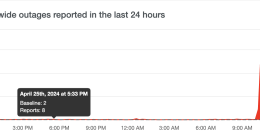
Opinions expressed by Entrepreneur contributors are their own.
In the vast and vibrant mosaic that is the U.S. real estate market, there lies a plethora of narratives rich with opportunity. This expansive canvas beckons entrepreneurs and business leaders to cast their sights far beyond the confines of their local vicinities. While investment dialogues have traditionally orbited around powerhouses like Los Angeles and New York, an array of untapped markets sprawls across the nation, waiting to be unearthed and capitalized upon.
This article is an odyssey, charting the rationale behind diversifying investment interests across the American landscape, equipped with data-driven insights and strategic acumen tailored for the astute business mind.
The economic tapestry of the U.S. is as diverse as its topographical splendor. From the innovation-fueled corridors of Silicon Valley to the historic trading floors of Wall Street, each contributes a distinctive thread to the nation’s GDP tapestry. The Bureau of Economic Analysis reports that these regional economies add considerable value, underpinning the real estate sector’s potential for growth. For entrepreneurs eyeing opportunities with robust prospects, aligning real estate initiatives with these thriving economic zones could leverage the inherent regional momentum.
Venturing beyond the allure of destinations like Beverly Hills or Manhattan, the U.S. presents a spectrum of luxury and commercial real estate markets, each replete with its character and investment potential. Consider Miami’s art deco enclave, where property appreciation, as noted by the National Association of Realtors (NAR), has surged, outpacing national averages. Chicago’s architectural splendor not only enhances the cityscape but also signifies a bustling commercial market with a notable uptick in occupancy rates. Boston’s cobblestoned streets and historic façades offer not just charm but a steady appreciation in real estate value, marking these locales as worthy of investor consideration.
Related: Why Real Estate Investment is the Ultimate Adventure for Entrepreneurs
The regulatory landscape of U.S. real estate can appear formidable, yet with institutions like the Small Business Administration (SBA) providing comprehensive guidelines, this terrain becomes navigable. This framework of varied yet coherent regulations form a supportive backdrop for nationwide real estate investment activities.
Innovation is in America’s DNA, mirrored in its technological and creative hubs. Industry leaders like CBRE highlight tech cities like Austin, which have seen explosive growth in the tech sector, thereby spurring demand for real estate. Similarly, research-centric towns like Raleigh-Durham are not just educational bastions but also investment hotbeds, where the nexus of academia and business catalyze property value increments.
Sustainability has transitioned from buzzword to business imperative across the U.S. The U.S. Green Building Council reports that LEED-certified properties command notable premiums, a testament to the market’s pivot towards eco-friendly living spaces. Investments in sustainable real estate are not merely ethical choices but strategically sound decisions that respond to a burgeoning market demand.
Demographic trends and cultural dynamics offer a glimpse into future market directions. Data from the Census Bureau shows shifting population patterns, hinting at emergent real estate demands. Astute investors use this demographic data to spot growing markets and anchor their investment strategies in solid, data-backed projections.
Infrastructure development is a harbinger of real estate value. The U.S. Department of Transportation’s data on upcoming projects, such as significant transit upgrades, signals future property hotspots. Shrewd investments in areas slated for infrastructural enhancement can lead to appreciable gains in property values and heightened demand.
Related: The Entrepreneur’s Guide to Building Wealth Through Real Estate
The resilience of the U.S. real estate market is exemplified by its historical performance. The Case-Shiller Index and other such metrics offer insights into the endurance of regional markets, guiding investors towards zones that balance stability and growth potential.
In the realm of real estate, the power of a robust professional network cannot be overstated. The American Real Estate Society (ARES) and similar organizations act as conduits to expertise, offering connections to local specialists, legal advisors and financial consultants. For entrepreneurs, these networks are goldmines of wisdom, fostering informed decisions and fruitful investments.
Diversification in real estate should be seen as a strategic play, capturing unique regional values. Leveraging economic reports and market indices, investors can pinpoint areas ripe for investment. The Bureau of Labor Statistics, for instance, highlights sectors such as professional and business services experiencing job growth, which correlates with increased demand for commercial real estate.
In my 20 years of experience as a property manager, I’ve observed firsthand the dynamic evolution of the U.S. real estate market as outlined above. The shift in investment focus from traditional hotspots to emerging markets, the interplay between regional economic strengths and property values and the increasing importance of sustainability and demographic trends in shaping investment strategies have all been pivotal in my approach to real estate management. Navigating these changes requires adaptability, keen market insight and a proactive stance in leveraging technological advancements and infrastructure developments to maximize property value and tenant satisfaction.
In conclusion, the U.S. real estate landscape extends an open invitation to those business leaders willing to explore beyond their comfort zones. Its diverse territories promise a rich field for investment and innovation. A strategic approach, underpinned by an understanding of national trends and regional subtleties, can unlock extraordinary value and propel growth. As they survey the breadth of America’s real estate horizon, investors are not just assessing properties; they’re envisioning the evolution of business and the prosperity it beckons. With these insights at their disposal, they position themselves not just as participants in the market but as shapers of its future, charting a path to success in the world’s most dynamic real estate marketplace.








